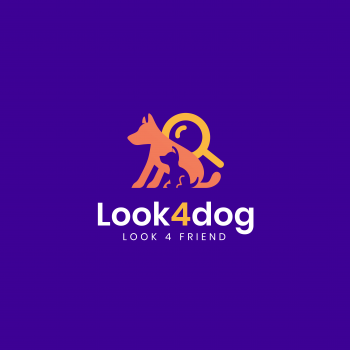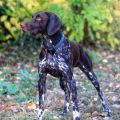The Schwyz Hound, also known as the Swiss Hound, is a versatile and intelligent dog breed that hails from Switzerland. With its striking appearance and exceptional hunting abilities, this breed has gained popularity not only in its home country but also around the world. In this comprehensive description, we will delve into the history, characteristics, and various aspects of the Schwyz Hound.
The history of the Schwyz Hound can be traced back to the Middle Ages, where it was primarily used for hunting purposes. This breed is believed to have descended from ancient Celtic hounds that were brought to Switzerland by the Romans. Over the centuries, the Schwyz Hound was selectively bred to enhance its hunting skills, endurance, and adaptability to the rugged Swiss terrain.
According to the FCI (Fédération Cynologique Internationale) typology, the Schwyz Hound belongs to Group 6: Scenthounds and Related Breeds. Within this group, it is classified under Section 1.2: Medium-sized Hounds. This categorization highlights the breed's exceptional scenting abilities and its medium-sized stature.
The Schwyz Hound is primarily used for hunting purposes, particularly for tracking and trailing game. Its keen sense of smell, coupled with its remarkable stamina, makes it an excellent choice for hunters. Additionally, this breed's versatility extends beyond hunting, as it also excels in various dog sports such as tracking, obedience, and agility.
In terms of physical characteristics, the Schwyz Hound is a medium-sized dog with a well-proportioned body. Males typically stand between 50 to 58 centimeters (19.5 to 23 inches) at the shoulder, while females are slightly smaller, ranging from 48 to 56 centimeters (19 to 22 inches). The breed's weight ranges from 20 to 30 kilograms (44 to 66 pounds), with males generally being heavier than females.
The Schwyz Hound possesses a distinctive appearance with its well-muscled body, deep chest, and strong limbs. Its head is proportionate to its body, featuring a slightly domed skull, a well-defined stop, and a moderately long muzzle. The breed's eyes are medium-sized and dark, exuding an intelligent and alert expression. The ears are set high and hang close to the head, framing the face elegantly.
One of the most striking features of the Schwyz Hound is its coat, which is short, dense, and glossy. The breed's coat color is predominantly tricolor, consisting of a black base with rich tan markings on the face, chest, and legs, as well as white markings on the chest, neck, and tail tip. This tricolor combination gives the Schwyz Hound a distinctive and eye-catching appearance.
In terms of temperament, the Schwyz Hound is known for its friendly and sociable nature. It is a loyal and affectionate breed that forms strong bonds with its family members. While it is generally good with children and other pets, early socialization and proper training are essential to ensure a well-rounded and obedient dog.
The Schwyz Hound is an active and energetic breed that requires regular exercise to keep both its body and mind stimulated. Daily walks, jogging, and interactive play sessions are necessary to meet its exercise needs. Without adequate physical and mental stimulation, the breed may become bored and exhibit destructive behaviors.
With proper care and nutrition, the Schwyz Hound has an average life expectancy of 12 to 14 years. Regular grooming is relatively low-maintenance, as the breed's short coat only requires occasional brushing to remove loose hair. However, attention should be given to the ears, as they are prone to infections and should be cleaned regularly.
In conclusion, the Schwyz Hound is a remarkable dog breed that combines beauty, intelligence, and hunting prowess. With its rich history, versatile abilities, and friendly temperament, it has become a beloved companion and working dog. Whether in the field or as a family pet, the Schwyz Hound continues to captivate dog enthusiasts with its unique qualities and unwavering loyalty.
The Schwyz Hound, also known as the Swiss Hound, is a remarkable breed of dog that possesses a unique character and temperament. These dogs are known for their intelligence, loyalty, and strong work ethic. With their striking appearance and exceptional abilities, Schwyz Hounds make excellent companions, working dogs, and family pets.
In terms of their character, Schwyz Hounds are known for being friendly and affectionate. They form strong bonds with their families and are particularly gentle and patient with children. These dogs thrive on human companionship and are happiest when they are included in family activities. They are also known for their calm and composed nature, making them well-suited for households with a relaxed atmosphere.
Schwyz Hounds are intelligent and eager to please, which makes them highly trainable. They have a natural instinct for hunting and tracking, and their keen sense of smell allows them to excel in search and rescue operations. However, it is important to note that their strong hunting instincts can sometimes lead to chasing small animals, so early socialization and obedience training are crucial.
When it comes to raising and training a Schwyz Hound, consistency and positive reinforcement are key. These dogs respond well to reward-based training methods, such as treats and praise. They are sensitive and do not respond well to harsh or forceful training techniques. Early socialization is essential to ensure they grow up to be well-rounded and confident dogs.
Exercise is vital for Schwyz Hounds, as they have high energy levels and a strong need for mental stimulation. Regular walks, jogs, or play sessions in a secure area are necessary to keep them physically and mentally fit. Engaging them in activities that tap into their natural instincts, such as scent work or agility training, can be highly beneficial.
Due to their strong pack instincts, Schwyz Hounds may exhibit some independence and stubbornness. It is important to establish yourself as the pack leader through consistent training and clear boundaries. With proper guidance and leadership, they will become obedient and well-behaved companions.
Grooming requirements for Schwyz Hounds are relatively low. Their short, dense coats are easy to maintain and only require regular brushing to keep them clean and free from loose hair. Bathing should be done as needed, and their ears should be checked regularly to prevent any infections.
In conclusion, the Schwyz Hound is a breed that possesses a wonderful character and temperament. They are friendly, loyal, and intelligent dogs that thrive on human companionship. With proper training, socialization, and exercise, they make excellent family pets, working dogs, and companions for active individuals or families. The Schwyz Hound is truly a remarkable breed that brings joy and companionship to any household lucky enough to have one.
The Schwyz Hound, also known as the Swiss Hound, is a beautiful and energetic breed that requires proper care to ensure their health and happiness. Here is an extensive description of the recommended care for Schwyz Hound dogs, along with tips on what to do and what not to do when caring for dogs of this breed.
1. Exercise: Schwyz Hounds are active and athletic dogs that require regular exercise to keep them physically and mentally stimulated. Aim for at least 60-90 minutes of exercise daily, including brisk walks, jogging, or playing fetch. Engaging in activities like agility training or scent work can also be beneficial for their overall well-being.
2. Mental Stimulation: These dogs are intelligent and thrive on mental challenges. Provide them with puzzle toys, interactive games, and obedience training sessions to keep their minds sharp. Mental stimulation helps prevent boredom and destructive behaviors.
3. Grooming: Schwyz Hounds have a short, dense coat that requires minimal grooming. Regular brushing with a soft bristle brush or grooming mitt will help remove loose hair and keep their coat shiny. Bathing should only be done when necessary to avoid stripping the natural oils from their skin.
4. Dental Care: Like all dogs, dental hygiene is crucial for Schwyz Hounds. Brush their teeth regularly using a dog-specific toothbrush and toothpaste. Dental chews or toys can also help maintain their oral health.
5. Feeding: Provide a balanced and nutritious diet suitable for their age, size, and activity level. Consult with a veterinarian to determine the appropriate portion sizes and feeding schedule. Avoid overfeeding to prevent obesity, which can lead to various health issues.
6. Socialization: Schwyz Hounds are social dogs that enjoy the company of humans and other animals. Early socialization is essential to ensure they grow up to be well-rounded and friendly. Expose them to different environments, people, and animals from a young age to help them develop good social skills.
7. Training: These dogs are intelligent and eager to please, making them relatively easy to train. Use positive reinforcement techniques such as treats, praise, and rewards to motivate them during training sessions. Consistency, patience, and firmness are key to successful training.
8. Health Care: Regular veterinary check-ups are crucial to monitor their overall health and detect any potential issues early on. Vaccinations, parasite prevention, and routine examinations should be part of their healthcare regimen. Additionally, be aware of breed-specific health concerns such as hip dysplasia and ear infections, and take necessary precautions.
9. Safety: Schwyz Hounds have a strong prey drive, so it's important to keep them on a leash or in a securely fenced area during outdoor activities. Ensure they have proper identification tags and are microchipped in case they ever get lost.
What not to do:
1. Do not leave them alone for extended periods: Schwyz Hounds are social dogs and can become anxious or develop destructive behaviors if left alone for long periods. Ensure they have enough human interaction and mental stimulation throughout the day.
2. Do not use harsh training methods: These dogs respond best to positive reinforcement techniques. Avoid using punishment or harsh training methods as it can damage their trust and hinder their progress.
3. Do not neglect their exercise needs: Insufficient exercise can lead to obesity and behavioral issues in Schwyz Hounds. Make sure they get enough physical activity to keep them happy and healthy.
4. Do not ignore their dental care: Dental hygiene is often overlooked but is crucial for their overall health. Neglecting dental care can lead to dental diseases and other health complications.
5. Do not skip regular vet check-ups: Routine veterinary care is essential to catch any potential health issues early on. Regular check-ups, vaccinations, and preventive care are vital for their well-being.
By following these care tips and avoiding the mentioned pitfalls, you can provide the best possible care for your Schwyz Hound. Remember, a well-cared-for dog is a happy and healthy companion.
The Schwyz Hound, also known as the Swiss Hound, is a magnificent breed of dog that possesses a distinct and captivating coat color. These dogs are renowned for their striking appearance, which is primarily characterized by a rich and deep hue that is often referred to as "tricolor."
The predominant color of the Schwyz Hound is a lustrous and glossy black, which serves as the base color for their coat. This black coloration is evenly distributed throughout their body, creating a sleek and elegant appearance. The black coat is typically dense and smooth, adding to the dog's overall allure.
Complementing the black base color are two other shades that give the Schwyz Hound its tricolor distinction. The first of these colors is a warm and vibrant tan, which is usually found on the dog's cheeks, eyebrows, chest, and legs. This tan coloration adds a touch of brightness and contrast to the overall coat, enhancing the dog's regal and dignified appearance.
The second additional color found on the Schwyz Hound is a crisp and clean white. This white color is typically seen as markings on the dog's chest, paws, and tail tip. These white markings provide a striking contrast against the black and tan, creating a visually stunning combination that is both eye-catching and aesthetically pleasing.
The distribution of these colors on the Schwyz Hound's coat is usually well-defined and symmetrical, further accentuating their overall beauty. The black color forms the majority of the coat, with the tan and white markings adding depth and dimension to the dog's appearance.
It is important to note that while the tricolor combination is the most common color pattern for the Schwyz Hound, variations can occur. Some individuals may exhibit a more pronounced tan coloration, while others may have larger or smaller white markings. However, regardless of these variations, the overall effect remains captivating and true to the breed's distinctive appearance.
In conclusion, the Schwyz Hound is a breed of dog that possesses a captivating coat color. The tricolor combination of black, tan, and white creates a visually stunning and regal appearance. The glossy black base color, complemented by warm tan markings and crisp white accents, adds depth and contrast to the dog's overall coat. Whether seen in the show ring or out on a walk, the Schwyz Hound's coloration is sure to turn heads and leave a lasting impression.
The Schwyz Hound, also known as the Swiss Hound, is a medium-sized breed known for its exceptional hunting skills and robust health. These dogs are generally healthy and have a life expectancy of around 12 to 14 years. However, like all breeds, they are prone to certain health conditions. In this text, we will explore the most common diseases found in Schwyz Hound dogs and provide guidance on how to care for their health.
One of the most prevalent health issues in Schwyz Hounds is hip dysplasia. This condition occurs when the hip joint doesn't develop properly, leading to joint instability and subsequent arthritis. Regular exercise on soft surfaces, maintaining a healthy weight, and avoiding excessive jumping or rough play can help reduce the risk of hip dysplasia. Additionally, responsible breeders perform hip evaluations on their breeding dogs to minimize the occurrence of this condition.
Another common health concern in Schwyz Hounds is ear infections. Due to their long, droopy ears, these dogs are more prone to developing infections caused by trapped moisture, dirt, or wax. Regular ear cleaning with a veterinarian-recommended solution and routine inspection for any signs of redness, swelling, or discharge can help prevent and detect ear infections early on.
Like many other breeds, Schwyz Hounds can also suffer from allergies. Allergies can manifest as skin irritations, itching, excessive licking, and even gastrointestinal issues. Identifying and eliminating potential allergens from their environment, such as certain foods, pollen, or dust mites, can help manage allergies. In severe cases, your veterinarian may recommend allergy testing or prescribe medication to alleviate symptoms.
Gastric dilatation-volvulus (GDV), commonly known as bloat, is a serious condition that can affect Schwyz Hounds. Bloat occurs when the stomach fills with gas and twists, leading to a potentially life-threatening situation. To minimize the risk of bloat, it is advisable to feed your dog smaller, frequent meals, avoid vigorous exercise immediately after meals, and use elevated feeding bowls to promote slower eating.
Maintaining a healthy weight is crucial for the overall well-being of Schwyz Hounds. Obesity can lead to various health issues, including joint problems, heart disease, and diabetes. Providing a balanced diet, portion control, and regular exercise tailored to their needs can help prevent obesity and keep them in optimal condition.
Regular veterinary check-ups are essential for monitoring the health of Schwyz Hounds. Routine vaccinations, parasite prevention, dental care, and early disease detection through blood tests and screenings are vital for their well-being. Additionally, maintaining good dental hygiene by brushing their teeth regularly can help prevent dental diseases, which are common in many dog breeds.
In conclusion, while Schwyz Hounds are generally healthy dogs, they can be prone to certain conditions such as hip dysplasia, ear infections, allergies, bloat, and obesity. By providing proper care, including regular exercise, a balanced diet, routine veterinary check-ups, and preventive measures, you can ensure the health and longevity of your Schwyz Hound companion.
The Schwyz Hound, also known as the Swiss Hound, is a medium to large-sized breed known for its agility, endurance, and hunting skills. To ensure the overall health and well-being of these dogs, it is crucial to provide them with a balanced and nutritious diet. Proper nutrition plays a vital role in maintaining their energy levels, supporting their immune system, and promoting healthy growth and development.
When it comes to feeding a Schwyz Hound, it is essential to choose high-quality dog food that meets their specific nutritional requirements. Look for a commercial dog food brand that contains a high percentage of animal-based protein sources, such as chicken, beef, or fish. Avoid foods that list grains or fillers as the primary ingredients, as these may not provide the necessary nutrients for your dog's optimal health.
A balanced diet for a Schwyz Hound should consist of a combination of proteins, carbohydrates, fats, vitamins, and minerals. Proteins are essential for muscle development and repair, so it is important to ensure that your dog's diet includes an adequate amount of lean meats. Carbohydrates, such as whole grains and vegetables, provide a source of energy, while healthy fats, like fish oil or flaxseed oil, support a shiny coat and healthy skin.
It is recommended to feed adult Schwyz Hounds twice a day, dividing their daily portion into two meals. Puppies, on the other hand, may require more frequent feeding, usually three to four times a day, to support their rapid growth. Consult with your veterinarian to determine the appropriate portion sizes based on your dog's age, weight, and activity level.
In addition to commercial dog food, you can also incorporate some fresh, whole foods into your Schwyz Hound's diet. These can include cooked lean meats, such as chicken or turkey, as well as fruits and vegetables like carrots, apples, and green beans. However, it is important to avoid feeding them toxic foods such as chocolate, onions, grapes, or raisins, as these can be harmful to dogs.
Proper hydration is crucial for a Schwyz Hound's overall health. Always ensure that fresh, clean water is readily available for your dog throughout the day. Regularly check their water bowl to ensure it is clean and refill it as needed.
While proper nutrition is essential, it is equally important to avoid overfeeding your Schwyz Hound. Obesity can lead to various health issues, including joint problems, heart disease, and a decreased lifespan. Monitor your dog's weight regularly and adjust their portion sizes accordingly. If you are unsure about your dog's weight or dietary needs, consult with your veterinarian for guidance.
In conclusion, providing a balanced and nutritious diet is vital for the health and well-being of Schwyz Hound dogs. Choose high-quality dog food that meets their specific nutritional requirements, incorporate fresh, whole foods when possible, and avoid feeding them toxic or harmful substances. By following these guidelines and consulting with your veterinarian, you can ensure that your Schwyz Hound thrives on a healthy and well-balanced diet.





